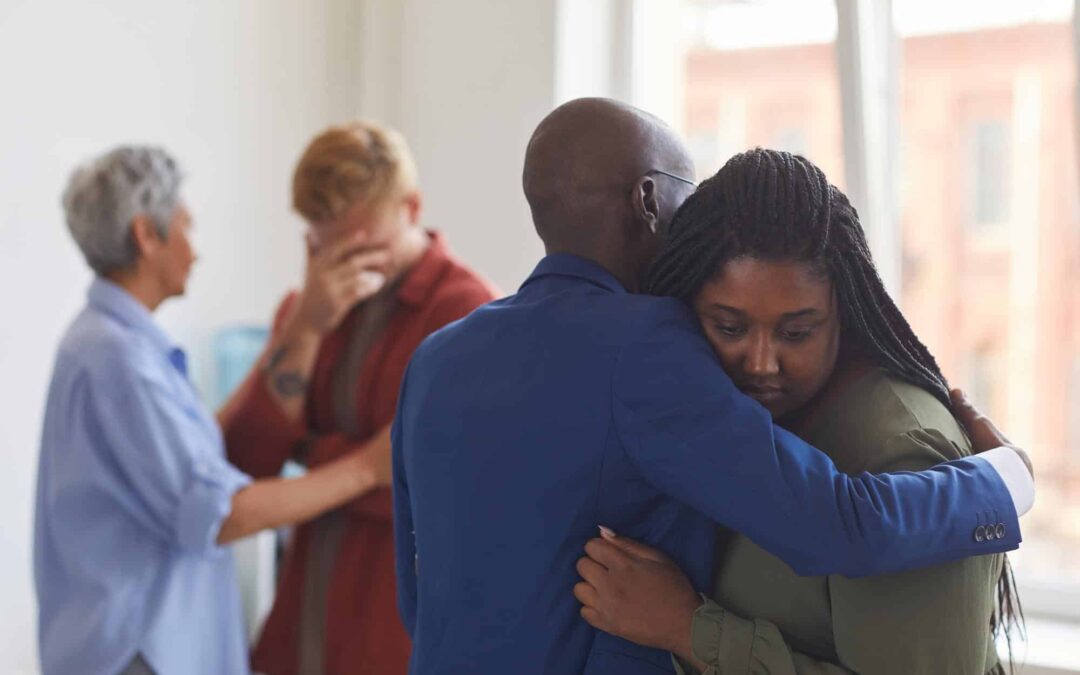The Power of Female Friendships in Recovery
Female friendships are deep, nurturing bonds between women that go beyond casual social connections. These relationships create safe spaces where women can be open, genuine, and understood without judgment. For women in recovery, these connections become vital sources of support and understanding.
Unique Challenges Women Face in Recovery
Women encounter specific challenges during recovery that make their experiences different. Factors such as societal expectations, family responsibilities, and trauma unique to women create intricate layers of healing. Many women grapple with issues like perfectionism, body image concerns, and the pressure to juggle multiple roles while working towards sobriety. This psychology of addiction often makes the recovery process more complicated.
The Role of Female Friendships in Healing
The emotional support found in female friendships adds a special element to the healing process in recovery. When women connect with other sober women through a strong sober support network, they discover shared experiences that validate their journey. These relationships offer practical wisdom, emotional understanding, and the comfort of knowing they’re not alone.
Through these bonds, women gain strength to confront their difficulties, celebrate their achievements, and fully accept themselves during their sobriety journey.
Seeking Help for Addiction
If you or someone you know is struggling with addiction and could benefit from these insights or support, don’t hesitate to reach out for help. You can contact us for more resources and guidance on the path to recovery.
Emotional Support and Well-being
Recovering from addiction can be emotionally painful, making it crucial to have supportive friends who can help during difficult times. Studies show that women who have strong friendships while going through recovery experience less anxiety and depression compared to those who try to recover alone.
The Power of Female Friendships
Friendships between women are incredibly important for rebuilding self-esteem. When women open up about their struggles and receive acceptance from their sober friends, it reinforces the idea that they are valuable beyond their past difficulties. These genuine connections empower women to see their worth and strengthen their commitment to staying sober.
The Impact of Friendship on Sobriety
A groundbreaking study in the Journal of Clinical Psychology found that women in recovery with strong friendship networks were three times more likely to maintain long-term sobriety. The research highlighted how positive female relationships contribute to:
- Reduced stress levels
- Higher self-compassion scores
- Improved emotional regulation
- Greater resilience during challenging times
These findings demonstrate the vital role supportive friendships play in fostering emotional stability and personal growth throughout the recovery process.
Shared Experiences and Compassion
Women in recovery share a unique bond through their collective experiences. The path to sobriety creates an unspoken understanding – a language only those who’ve walked similar paths can truly comprehend. These shared experiences build deep, meaningful connections that transcend surface-level friendships.
Creating Safe Spaces
When women come together in sobriety, they create safe spaces built on mutual understanding and compassion. A sober friend understands the weight of declining a drink at social gatherings or the challenge of rebuilding trust with family members. This deep empathy, which is crucial as it allows for authentic conversations about triggers, cravings, and personal growth without fear of judgment, is a powerful tool in the recovery process. In fact, empathy can significantly help with drug and alcohol addiction, facilitating healing and understanding.
Invaluable Relationships
These relationships prove invaluable during challenging moments in recovery. A late-night call to a sober friend who’s experienced similar struggles can prevent relapse. Celebrating sobriety milestones together reinforces commitment to recovery. Sharing strategies for managing stress, processing emotions, and maintaining boundaries strengthens each woman’s individual journey while fostering collective healing.
Foundations for Lasting Friendships
The power of these connections extends beyond recovery support – they become foundations for lasting friendships built on authenticity, trust, and shared growth.
Overcoming Barriers in Recovery Through Supportive Friendships
Women in recovery face unique challenges that can complicate their sobriety journey. The stigma surrounding women’s addiction creates additional pressure, with societal expectations often leading to shame and isolation. Mothers in recovery bear the weight of maintaining family stability while managing their sobriety, juggling childcare responsibilities with recovery needs.
How Supportive Friendships Help Women Overcome Challenges in Recovery
Supportive female friendships provide practical solutions to these barriers. A trusted sober friend can offer childcare during support group meetings or therapy sessions. These relationships create safe spaces for authentic conversations about the intersection of motherhood and recovery without judgment.
- The stigma of addiction diminishes through shared vulnerability.
- When women connect with others who understand their struggles, they discover they’re not alone.
- These friendships normalize the recovery experience, replacing shame with strength.
- A network of sober women becomes a shield against societal prejudices, transforming individual challenges into collective triumphs.
The Practical Benefits of Sober Friendships in Recovery
These connections extend beyond emotional support – they create tangible solutions. Sober friends share resources, recommend trusted professionals, and help navigate social situations where alcohol might be present. Through these bonds, women build resilience and develop practical strategies for long-term sobriety.
Building Healthy Connections in Sobriety
Building meaningful connections in sobriety requires discernment between healthy and unhealthy relationships. Healthy friendships bring mutual support, respect boundaries, and celebrate your recovery journey. They lift you up, honor your choices, and provide genuine companionship without judgment. Unhealthy relationships often involve enabling behaviors, disrespect for boundaries, or pressure to engage in triggering activities.
Creating new friendships in sobriety opens doors to authentic connections. Start by attending women-focused recovery meetings, joining sober book clubs, or participating in wellness activities. These spaces naturally attract like-minded individuals committed to personal growth and healing.
Recovery groups and social networks specifically designed for sober women provide structured environments for friendship development. These communities offer built-in understanding of recovery challenges and shared values. Many women find lasting friendships through regular participation in these groups, where shared experiences create natural bonds and mutual support systems.
Remember: authentic connections form gradually – focus on quality over quantity as you build your sober support network.
The Role of Support Groups and Therapy in Fostering Female Friendships During Recovery
Women-focused support groups create powerful spaces for authentic connection and healing. These specialized environments address gender-specific challenges in recovery, allowing participants to share experiences without judgment or hesitation. Groups like Women for Sobriety and women-only AA meetings provide safe spaces where deep, meaningful friendships naturally develop.
Group Therapy: Building Trust Through Vulnerability
Group therapy sessions offer structured environments where women build trust through shared vulnerability. The therapeutic setting encourages open dialogue about gender-specific trauma, relationship patterns, and societal pressures – conversations that strengthen bonds between participants. Professional guidance helps women develop healthy communication skills and boundary-setting practices that enhance their ability to form lasting friendships.
The Power of Combining Peer Support with Professional Guidance
The combination of peer support and professional therapy creates a comprehensive approach to relationship building in recovery. Women learn to identify common struggles, celebrate shared victories, and develop the emotional intelligence needed for sustainable friendships. These structured environments often lead to lasting connections that extend beyond the therapy room, creating valuable support networks for long-term sobriety.
Changes in Friendships During Sobriety: Losing Friends but Gaining Sisterhood
The journey to sobriety brings significant changes to social circles. Many women find that their existing friendships shift, evolve, or even come to an end as their lifestyle changes. This natural process, while difficult, makes room for genuine connections based on shared values and mutual growth.
The Impact of Letting Go
Letting go of friends who drink or those who don’t support recovery can lead to feelings of sadness, loneliness, and fear. These emotions, although strong, indicate personal growth and a dedication to well-being. Women in recovery often go through a temporary period of emptiness as they distance themselves from relationships or social situations that trigger them and revolve around alcohol.
Finding Sisterhood in Sobriety
The bright side is the emergence of new, meaningful connections with other sober women who understand this transformation. These relationships, grounded in authenticity and shared experiences, form a powerful sisterhood. Unlike previous friendships that may have been centered around social drinking, these bonds prioritize genuine support, personal development, and celebrating life’s moments without substances.
Rebuilding Your Social Circle
Rebuilding your social circle during sobriety may seem overwhelming, but it leads to deeper and more fulfilling relationships that align with your new path.
Empowerment Through Connection: The Impact of Sober Relationships on Women’s Journeys Towards Healing and Growth
Sober relationships between women create a powerful foundation for lasting recovery. These connections spark transformative changes, as women lift each other up through shared victories and challenges. The power of female friendships manifests in increased confidence, stronger boundaries, and enhanced self-awareness.
Women in recovery who build meaningful connections report feeling seen, heard, and validated in their journey. These relationships create safe spaces where vulnerability becomes strength. Through authentic connections, women discover their inherent worth beyond addiction.
The ripple effects of these friendships extend far beyond sobriety – they foster professional growth, improved family relationships, and renewed life purpose. Each woman’s success story becomes inspiration for others, creating an unstoppable cycle of healing and empowerment.




